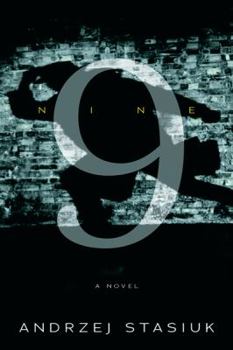Nine
Select Format
Select Condition 
Book Overview
Pawel, a young Polish businessman, is in trouble; in debt to loan sharks his only hope lies with former friends, many of whom are now prominent in Warsaw's drug-dealing underground. Embarking on a... This description may be from another edition of this product.
Format:Hardcover
Language:English
ISBN:0151010641
ISBN13:9780151010646
Release Date:January 2007
Publisher:Houghton Mifflin
Length:229 Pages
Weight:0.90 lbs.
Dimensions:0.9" x 6.6" x 9.1"
Related Subjects
Action & Adventure Contemporary Fiction Genre Fiction Literary Literature & FictionCustomer Reviews
2 ratings
Anonymous Lives
Published by Thriftbooks.com User , 15 years ago
Andrzej Stasiuk is emerging as one of the most interesting new writers in Post-Communist Poland. His themes seem to constantly explore the disjointed lives of misfits in a society undergoing great changes. As such, Stasiuk is the observer of that change which took place in Poland with the collapse of Communism, the rapid growth of the Free Market, and of the impact on the lives of the less fortunate. In "Nine" one drifts in and out of the lives of a group of individuals living on the fringes of society; tramps, drug addicts, criminals, dodgy dealers. They have an anonymity to them so that, at first, they could be anyone but then something brings them into focus and we place them into a context. And this is also true about the book - initially pointless, difficult to focus on but gradually coalescing into some sort of structure. The book is difficult to get into because of its episodic, almost disjointed quality but the quality of writing rewards the reader. The real focal point of the book, the real glue to it all, is the city, Warsaw, pulsating with anonymous lives and speeding traffic like blood coursing through veins. There is something about the "slice of life" here, just a snapshot, a sampling of anonymous lives.
3 1/2 in fact - excellent language and atmosphere rendering, but weak plot
Published by Thriftbooks.com User , 17 years ago
Pawel leaves his apartment one gloomy morning and... cannot come back. This is the beginning of "Nine" a novel by Andrzej Stasiuk, set in the 1990's in Warsaw, Poland. Pawel is one of many people, who after the transition were lured by the prospect of earning some money in their own business, which was finally allowed. He borrowed a lot of money from some dubious characters to opn a small store with underwear, and now he is in trouble. He visits his old friends and acquaintances, trying to borrow the sum, at the same time running away from the thugs sent by his creditors. Pawel wanders around Warsaw, using public transportation most of the time (occasionally a car); looking through the bas of streetcar window, he thinks about the past and sees the changes (or lack of changes) in the city. This is the side of Warsaw that was unknown (or unfamiliar: of course somehow in the corner of my mind I knew that it existed) to me when I lived there (I was at the university at the same time, and had lived in Warsaw all my life): Pawel sees mostly poverty, housing projects or dilapidated old huts on in the suburbs, dirt, the drug addicts and prostitutes at the Central Station, illegal Vietnamese streetsellers... Stasiuk describes the dark side of Warsaw very suggestively, using strong imaging and words, his prose is very masculine (I usually try to avoid such classifications, but here it is hard to avoid). The atmosphere of the novel is heavy, depressing, with many excellent observations, so that the city life during this transition period can be perfectly reconstructed. Unfortunately, this is all there is. The whole novel is a snapshot of the daily life, and a very good snapshot, but the plot does not really get anywhere, it is only a description of a few days from a life of Pawel and some other characters to who he is connected more or less loosely. All the threads (which are also not very explicitly shown, rather hinted upon) lead nowhere, only giving a general sense of danger and hopelessness. For me, this is a weakness of this book, especially if it is supposed to be a novel. I like Stasiuk's more recent books, in which he focuses on his impressions from travels around Eastern Europe, much better - he is perfects at catching the specific climate of small, forgotten places and at telling stories of ordinary people. "Nine" is not Stasiuk's best, but it gives hope for more translations into English (for now, of what was translated, I recommend "Tales of Galicia").





